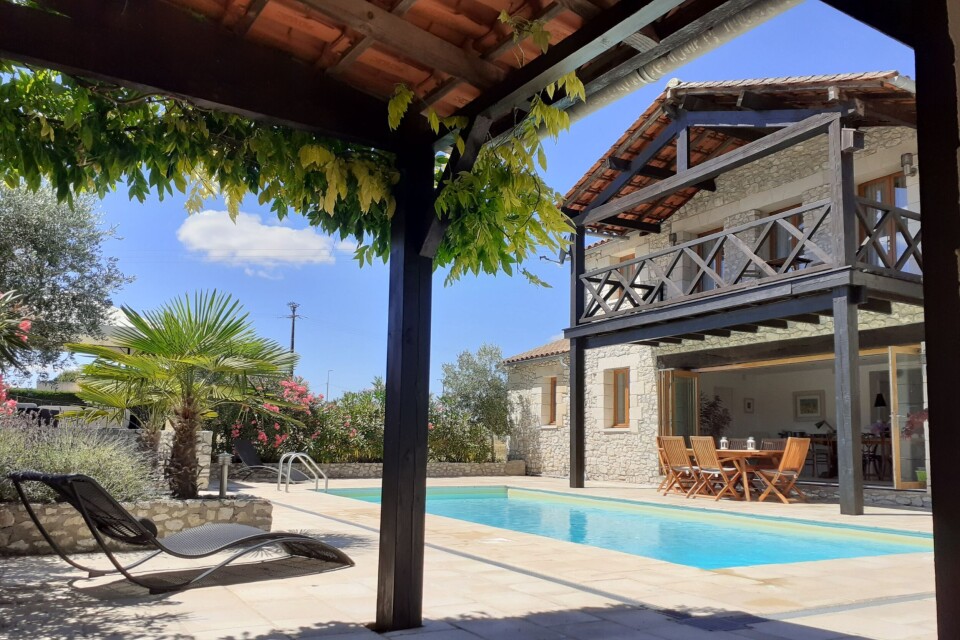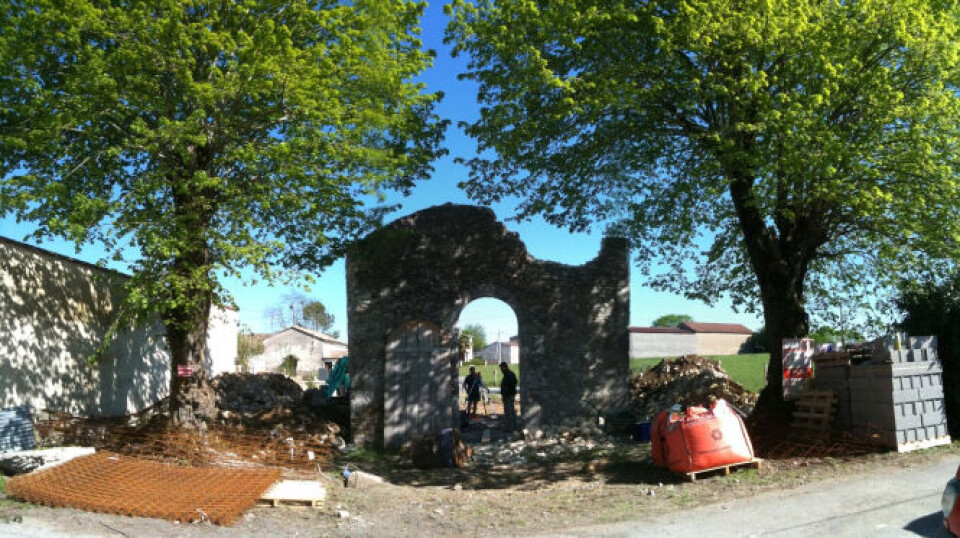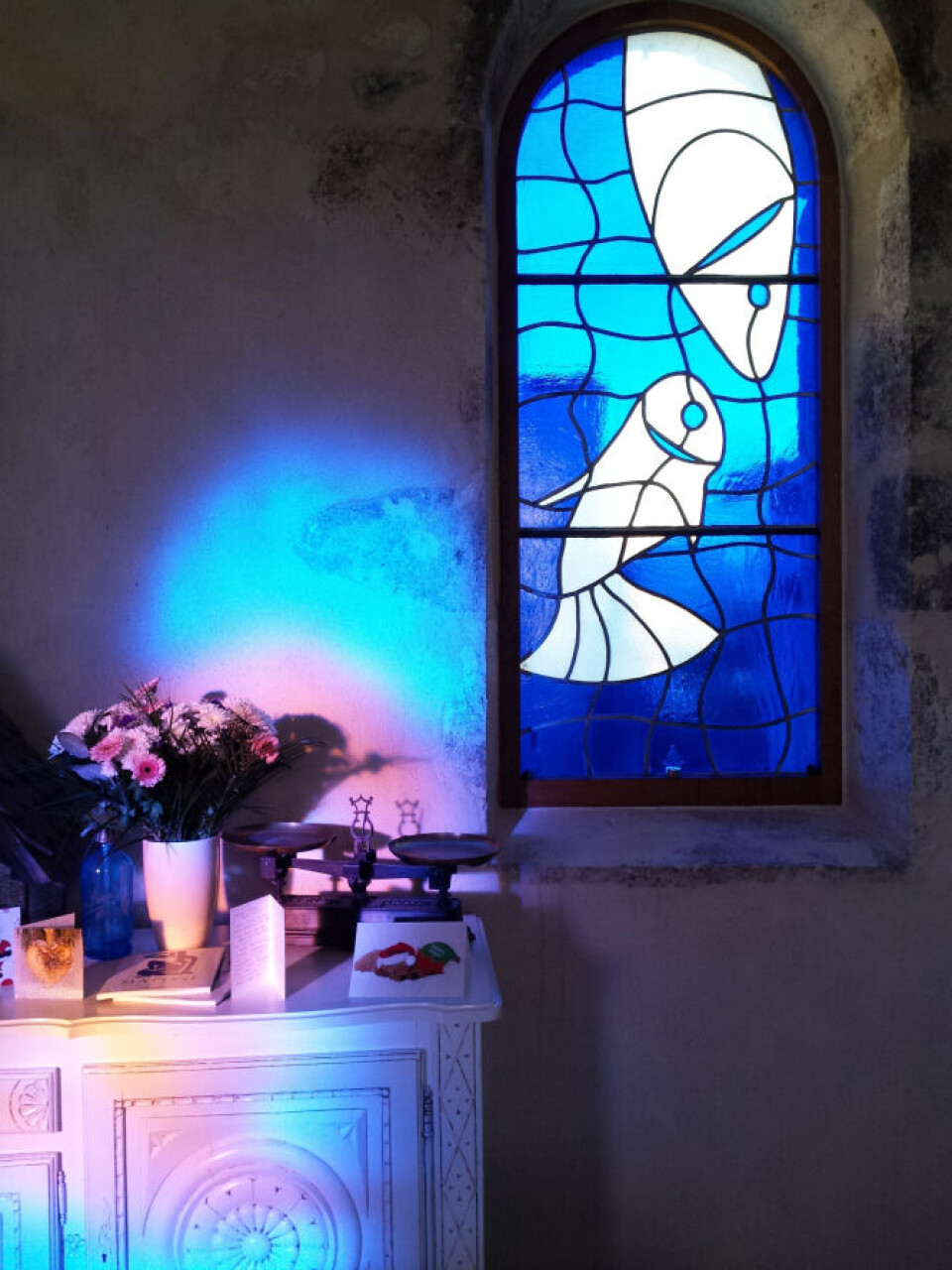-
Why do many think wood-fired boilers will be banned in France - and is it true?
A new poll found that a majority of people believe a ban on wood-fired boilers and stoves will come into force from 2027
-
AI finds ‘soaring’ cases of fraud in French home renovation applications
More than 40,000 cases were detected in 2024, the housing agency states
-
How to solve higher DIY challenges in France
Nick Inman charts the ups and downs of renovating an old French farmhouse
How I converted €45,000 French ruin into high-end home
The property has undergone complete renovation, including bespoke stained glass windows

When reader James Linton bought an old Protestant chapel in south-west France, it was less of a building and more of a ruin. “It had just three walls still standing – and the previous owners had put a swimming pool in the garden,” the 56-year-old engineer says.
James relished the challenge of making it habitable. “It was 2011 and, after leaving a company I had founded and working as an IT consultant for two years, I wanted to take on a project I would really enjoy.”
The idea was to work on this for 18 months and use the finished property in Loubès-Bernac, Dordogne, as a holiday home and gîte. Alongside his work in the UK, James had already built up a portfolio of rental properties, including a holiday home in the Dordogne town of Ribérac.
When it came to this project, he decided to look further afield. “I drew a radius of 30km around Bergerac airport and concentrated on the south,” he says. “Initially, I was looking for a house in a little village with amenities. However, during an internet search, the chapel popped up for £45,000.
“The idea of renovating something so old – it dates from around 1860 – was appealing, so I decided to take a look.”
Read more: A chateau for just €100? French mairie buys fairytale ruin
Design challenges
In the past, James had installed kitchens and bathrooms but he admits “this was as far as my DIY skills went”. Even so, he loved the idea of doing it up, comparing the challenge to something out of the popular TV series Grand Designs.
The previous owners were an Australian couple who had already begun renovations. They had started by installing the pool to enable the pipework and access before planning to move on to the building.
Once they received quotes for the rest of the work, they decided it was too expensive – and too complicated to manage from Australia.
As a result, the property came with a bonus – designs and planning permission for a two-bedroom conversion, as well as drawings for a three-bedroom alternative.
"As I thought the two-bed would not be big enough, I bought the chapel on the condition that they got permission for the three-bed design,” says James.

With just a one-sheet design to work from, many would have been daunted. Fortunately, James had contacts in the UK who could step in and help him get the project off the ground.
“Someone who I had worked with on properties before, as well as his builder brother-in-law, plus a friend and a local handyman from the UK, came along. We arrived on April 1, 2011.”
Prior to flying out, James had spent months working on hand-finished stained-glass windows to fit in the building. “The plans had plain double-glazing on them, but I wanted something more in keeping with a chapel,” he says.
“I took measurements and found a stained-glass course in the UK which I did while waiting for the property to go through. I finished one pane by the end of the course and completed another 11 afterwards.”
The remaining walls of the chapel had to be taken down before work could start. “The roof had collapsed 40 years previously and rain had got into the structure, washing the mud-based mortar away. The walls could literally be pushed down.
“We ended up with just three-quarters of the front wall that was secure enough to keep,” says James. “The advantage was that we could then put a damp-proof course in before rebuilding.”
With the chapel uninhabitable, the group rented a flat in nearby Duras. “We worked on the property on and off for three months, with some of the guys going back and forth to the UK,” says James. “In that time, we got the main structure and the roof timbers up.
“As well as rescuing the original stone, we used Siporex blocks to build the main structure, which made everything vertical, straight, and square,” he says.
Read more: Am I eligible for an interest-free loan to help buy a French property?
From chapel to unique three-bed property
After three months, James was left on his own to tackle the rest of the work. “I had to pitch a tent and live on site,” he says. “There was running water and some electricity, but no real roof. The first winter saw temperatures drop to -18C, so it was a little challenging.”

While the job ended up taking three years, rather than the 18 months James had envisaged, he was left in 2014 with a unique three-bed property, with a terrace and in-ground pool.
The original ‘chapel’ has become a living room, with an attached kitchen and dining area, and five-metre bi-fold doors leading to the pool.
Although James’s original budget of €100,000, including the €45,000 purchase price, was exceeded, he has still managed to do the job for an impressive €150,000 all in.
The chapel is now run as a gîte, but James has not returned to England, as originally planned.
“During the renovations, I met Emma, so I am now here permanently, drawing income from the properties I still rent out in the UK,” he says. He has also bought the 19th century house next door to renovate but has no plans to repeat a project on the scale of the chapel.
“It was definitely a once-in-a-lifetime experience.”
Related articles
French former prison transformed into a hotel
Replace religious holidays with secular ones, suggests French mayor
Do you agree? France’s belief in laïcité (secularism) works
























